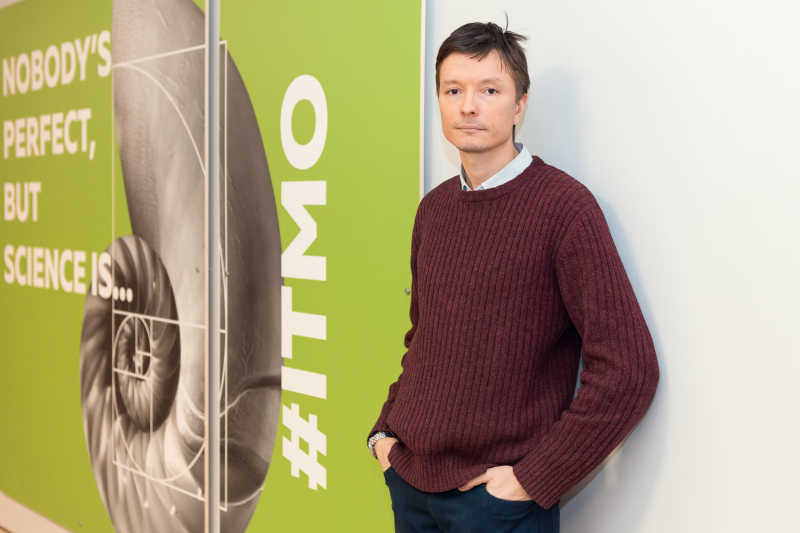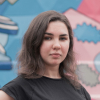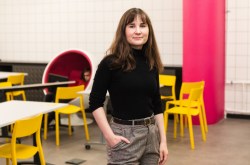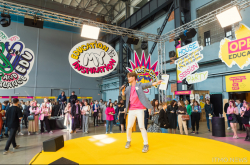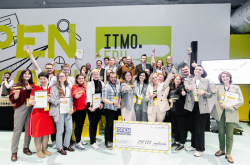How did you start teaching history at a technical university?
I didn’t have a lot of workload at St. Petersburg State University, so I was looking for some more tasks. Galina Zhirkova, the head of ITMO University’s Center of Social Sciences and Humanities, offered me to start teaching the history of science and technology and I said yes. I’ve always been into this field and I liked the idea of working at a technical university.
I loved the atmosphere at ITMO. It’s not only beneficial for the students’ growth but also for lecturers, as they’re motivated to look for new ways of teaching. The university allows you to apply various approaches, develop new methods, experiment in several fields, and come up with new projects. I’m really into that as a researcher and a lecturer. Moreover, I didn’t expect students of a technical university to be so engaged in history.
What kind of projects have you already implemented at ITMO?
We’ve been implementing TECHNOHISTORY project for two years now. It’s connected to various fields, such as modern information technologies, molecular biology, and space studies. It was a hit among the first- and second-years. The participants created various products: mobile apps about history, research projects, podcasts, videos, and interactive maps. In 2021, we’ve also come up with the PETRO pr(i[t]mo) project that coincides with the 350th anniversary of Peter the Great.
We’ve offered the students who continued working on their products to participate in more large-scale events. For example, mobile app developers will be able to present their work at the Rukami festival. We would also like to talk about our research projects at the St. Petersburg Historical Forum, perhaps as part of our own section on the history of science and technology during Peter the Great’s reign.
![The mobile app developed by members of the PETRO pr(i[t]mo) project, Igor Klyushev and Matvey Dudko, Bachelor’s students of the Programming and Internet Technologies program, and Polina Ilyina, a Bachelor’s student of the Bioengineering program. Image courtesy of the project developers](/images/news/big/1238002.jpg)
The mobile app developed by members of the PETRO pr(i[t]mo) project, Igor Klyushev and Matvey Dudko, Bachelor’s students of the Programming and Internet Technologies program, and Polina Ilyina, a Bachelor’s student of the Bioengineering program. Image courtesy of the project developers
Why do you think STEM students are into history?
I think they lack this in their everyday life. Most of the subjects they study are related to their professional activities. They also spend a lot of time online or using various computer tools. They feel the lack of something humanities-related. So they’re really interested in what we offer them to listen, read, and watch. The mode of speaking is also important here – it shouldn’t be dry and academic but understandable to them. The students are open to new knowledge and feel the need to obtain it.
How do you find a common ground with your students?
The main thing here is the variety of activities. Classical seminars look like this: the lecturer hands out the tasks, the students complete them, and then present their reports. If you do this all the time, students lose their motivation. Different formats, however, allow you to engage them. I often give tasks related to browsing the web at large or specific sources because I realize that for them, it’s the main tool in the modern world. They know how to look for information but don’t know how to check it and compare various sources. Often this is caused by the lack of time or other reasons. Typically, they just take a Wikipedia article or something similar and base their presentation on this. But working with various sources of information is crucial and that’s what I’m trying to teach: to assess and compare various sources and use different ways of verifying information.
For example, I sometimes open my lectures with a question, such as: “Do you know when the first-ever functioning robot was created? In the third century BC. It could pour wine and mix it with water.” This helps me engage my students. After that, they do their own research on this topic, compare ancient technologies with similar modern ones, see if we’re doing something completely different now or follow the tradition, and then share their conclusions.
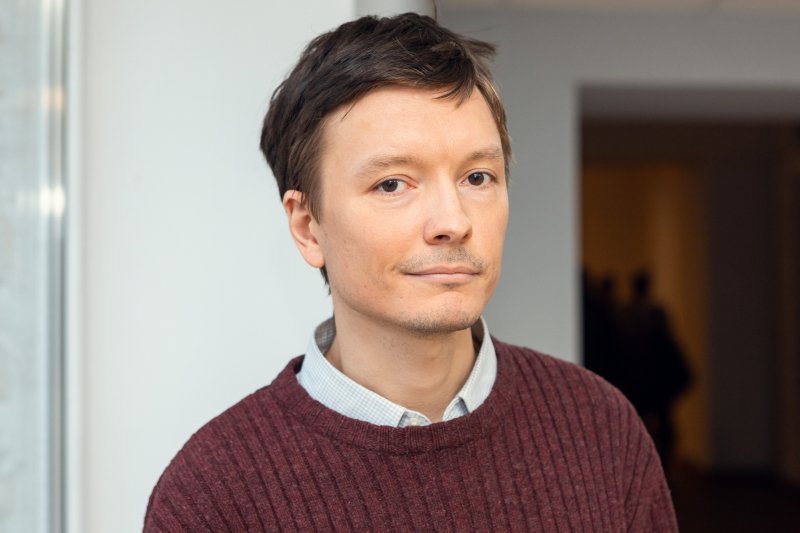
Andrey Vasilyev. Photo by Dmitry Grigoryev, ITMO.NEWS
What’s the biggest challenge in teaching?
Sometimes it can be hard to get every student involved: despite my best efforts, I notice that some students are not focused on the given task. And I understand them to a certain extent – as a student, I also had subjects where I didn’t pay much attention to what was going on in class. So the greatest challenge is engaging every single student, because there are always people who are very hard to get engaged.
What do you think about those students who don’t care about your subject and only come to class to get a pass?
I do my best to get them involved by making my classes about what they are interested in. Sometimes I succeed, but if a student still doesn’t want to do anything, I give them a number of compulsory assignments and then it’s their choice and responsibility to complete them. I don’t think that students are obligated to be active in every class. I believe that lecturers should try to engage their audience but I know that unfortunately history is not everyone’s cup of tea. I don’t see it as a catastrophe and I definitely won’t pressure students into anything – this has proven highly ineffective. It’s much worse when the whole group is passive, not just a single student. This is, however, more connected to the lecturer’s teaching skills.
Besides Russian, you know four other languages: English, Italian, Ancient Greek, and Latin. Why did you choose these languages specifically?
During my university studies, I majored in Ancient Greece and Rome and thus had to learn Latin and Ancient Greek – we needed the languages to work with historical sources. It was blood, sweat, and tears, grueling work, but I think that it came in handy eventually. Apart from serving a practical purpose, learning languages makes your brain work solving linguistic puzzles. For instance, after learning Latin, it was much easier for me to master Italian during my internship in Rome. And the same is true with learning other modern languages and even programming ones.
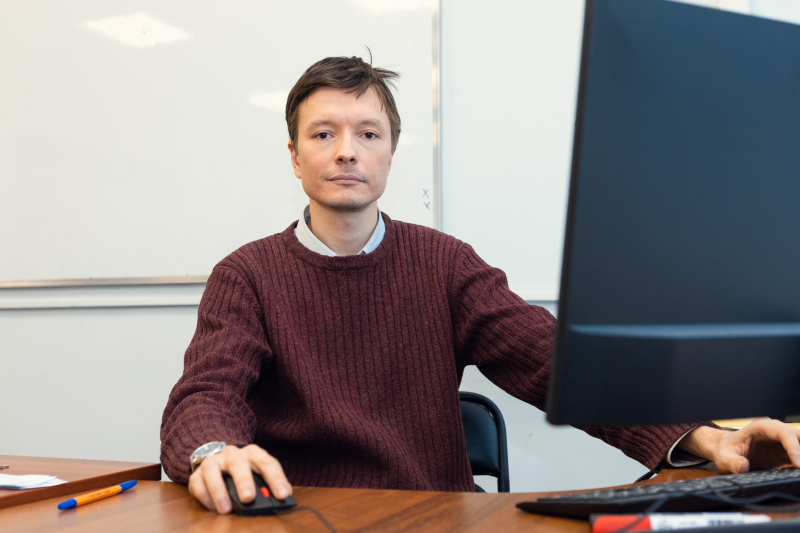
Andrey Vasilyev. Photo by Dmitry Grigoryev, ITMO.NEWS
For years, you’ve been participating in the Nymphaion archeological expedition of the State Hermitage Museum. What has this experience been like for you?
I would call it a chance to touch history with my own hands. I’ve been visiting Nymphaion situated on the Crimean Peninsula for ten years and have made many interesting discoveries there. Once, I found an almost undamaged peculiarly shaped vessel that might have been used to store cosmetics. It was a total coincidence – it happened when I was asked to dig up a balk (an intact wall of an excavation).
In Nymphaion, the excavations follow a standard procedure: the ground is divided into squares, in which the earth is removed layer by layer. When we find fragments of bones or vessels, we switch our spades for trowels and brushes, and then carefully clean and photograph everything. That is why excavations take such a long time, the whole process requires a lot of care, precautions, and other scientific procedures.
The city itself has an intriguing history: it flourished for 1,000 years before dying out in the Migration Period. These days, it’s a free open-air museum where you can stroll down ancient streets.
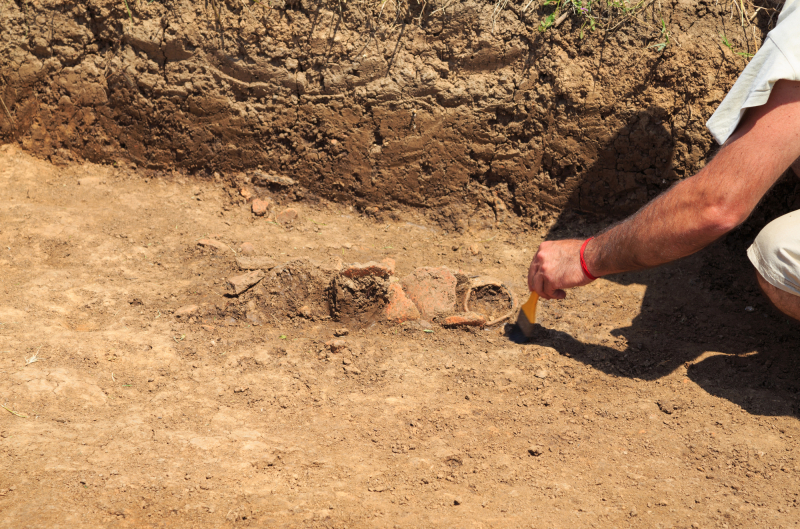
One of the stages of an archeological excavation. Credit: depositphotos.com
Why are you into classical antiquity?
It is in this period that many of the things we are used to were first conceptualized, such as theater, philosophy, science, and democracy. Back then, people were just describing them in their works. Also, it’s the time when many genres of European literature were developed, such as novels and dramas. I think it’s an interesting time that laid the groundwork for our civilization.
Last year, you won an ITMO.EduStars award. What do you think about this competition?
I believe it’s an important initiative that many universities lack. Such contests and awards make teaching a more prestigious profession and evaluate it from a moral standpoint rather than material one. It motivates me to work even harder.
